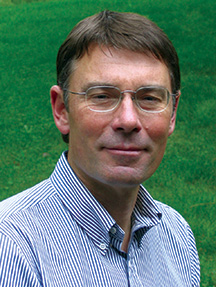
INTERVIEW
Money Has No Home

Donald W. Dony is a professional technical analyst and holds the top global designation of Master of Financial Technical Analysis from the International Federation of Technical Analysts (IFTA), the first in Canada to achieve this designation. Dony has been in the investment profession for more than 25 years, first as a stockbroker and then as the principal of DW Dony and Associates, a financial consulting firm. He is the editor and publisher of the Technical Speculator, a monthly international investment newsletter, which reviews major world equity markets, currencies, commodities, bonds and interest rates.
Dony is often called upon to design technical analysis training programs and provide teaching to industry professionals on technical analysis at many of Canada’s leading brokerage firms. He is a respected specialist in the area of intermarket and business cycle analysis and a frequent speaker at international investment conferences. He is a member of the Canadian Society of Technical Analysts and IFTA.
Stocks & Commodities Editor Jayanthi Gopalakrishnan interviewed Donald Dony on January 29, 2013.
Donald, how did you get started in the markets?
My dad was always interested in the markets. He was similar to a lot of people of that generation. They held onto things, never sold. They stayed with a company, thick or thin. That got me interested.
In the 1980s, it was a difficult time to find a job and I had taken the Canadian Securities Institute course, mainly because I didn’t know what I wanted to do. I passed the course. I didn’t get hired right then, but I continued taking more and more courses and advancing my education.
Eventually, I did get hired and I stayed with one of the major banks until the early 1990s. I recognized I wanted to be more of an analyst than a stock salesman. So I took more courses and finished my master’s degree in financial technical analysis (MFTA). I finished that in 2004, I think, and put my shingle out, and now, I send research all around the world.
You do a lot of work with cycles. And one of the first things that you look at is the business cycle, I believe.
When everybody is bearish, itís probably time to buy in. You know those rules.In some respects, yes, but that is probably not as paramount as it used to be. I did my master’s thesis in cycles within the international markets, but as I moved on, I used a lot of intermarket analysis. I am always backing it up with trendlines. I put a lot of economics behind that. But I look at a number of pieces that I put into the puzzle.
What do you look for first and how do you drill down into all the various components?
The first thing I look at is the global markets. Markets generally trade together nowadays. They’re not so driven by their own country’s fundamentals — they’re affected by everybody. Money does not have a home. So I look at the overall theme and see where we are. I also look at the business cycle. I look where the GDP has bottomed out and where it is going. That aligns with the stock market, though the economic data is usually a bit behind. But it gives you more conformation of a start of a bull market versus, say, just another false bear market. You need that GDP growth, or the economic growth behind it.